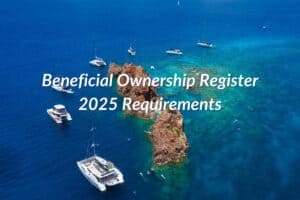The term “Legitimate Interest” plays a crucial role in the updated rules governing access to the Beneficial Ownership Register in the British Virgin Islands (BVI). It determines who, beyond public authorities, may request access to ownership information about companies and partnerships registered in the jurisdiction.
Who Can Access Beneficial Ownership Information?
The following entities and individuals now have the right to access entries in the BVI Beneficial Ownership Register:
- Competent authorities
- Law enforcement agencies
- Parties to the UK-BVI Exchange of Notes
- Persons who can demonstrate Legitimate Interest
What Are the Requirements to Demonstrate Legitimate Interest?
To satisfy Legitimate Interest requirements, the requestor must meet one of the following:
- The request relates to an investigation or prevention of money laundering, terrorist financing, or proliferation financing.
- A beneficial owner tied to the legal entity has been convicted or is under investigation for theses offenses.
- The requester is an “obliged entity” conducting customer due diligence or fulfilling regulatory obligations under BVI AML laws.
What Are the Conditions for Access?
Anyone (individual, legal person, or obliged entity) making a request must:
- Provide identification and verification documentation
- The name of the legal entity related to the request
- The BO name, if known
- Submit a signed declaration that the information will only be used for the stated purpose
- Pay the prescribed fee
- Cooperate with any additional requests from the Registrar
The Registrar may refuse access if requirements are not met or if it is not in the public interest. Discrepancies must be reported o the Registrar within 14 days.
When Can Beneficial Ownership Information Be Exempt from Disclosure?
Exemptions may be granted when:
- There’s a credible risk to the beneficial owner or family (e.g., fraud, violence)
- The data relates to a child or a person lacking legal capacity
- National security could be compromised
- Special reasons justify refusal under Regulation 31G(4)
- The Registrar determines disclosure is not in the public interest
Additional evidence, such as a government-issued security letter, may be required to support the exemption.
Access Procedure and Legal Entity Objections
Only a natural person beneficial owner can be inspected under the Register if they:
- Hold > 25% ownership, capital, profits, or voting rights
- Control board appointments
- Exercise management control
The Registrar will inform the relevant legal entity, which then has 5 business days to file an objection. The Registrar may reject objections if:
- The request meets legal and public interest criteria
- The request is not misleading or inaccurate
- No applicable disqualifying circumstances exist under Regulation 31G(6)
Right to Appeal the Registrar’s Decision
If access is granted despite objection, the affected party may:
- File a notice of intent to appeal within 3 days
- Submit a formal appeal within 21 days
Filling a notice of intent suspends the Registrar’s decision until the Appeal Board makes a ruling. If no appeal is filed within the 21-day window, the appeal right is forfeited.
Key Compliance Dates and Transitional Period
- 1 July 2025: Legal entities must begin compliance with the new regulations.
- 2 January 2026: Exemption applications may be submitted under Regulation 31G.
- 1 April 2026: Registrar begins accepting inspection requests.
Schedule 3: Fines and Transitional Period
Failing to comply with disclosure rules may result in severe penalties:
- Up to $10,000: Failure to report discrepancies, changes or new information
- Up to $50,000: Failure to provide accurate and timely data
- Up to $75,000: False or misleading information, misuse of data, or unauthorized sharing
Final Thoughts
The introduction of Legitimate Interest provisions mark a significant shift in the BVI’s approach to beneficial ownership transparency. Entities and intermediaries must now prepare to comply with stricter disclosure, objection, and appeal procedures alongside increased enforcement.
Need support navigating these changes? Contact us for more guidance.




